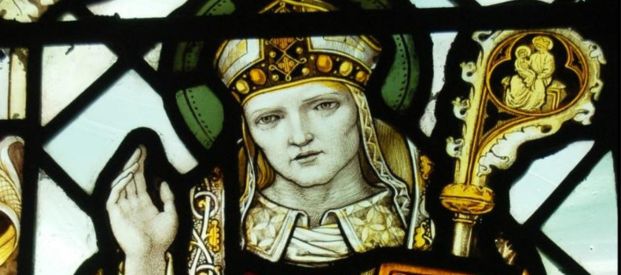The Latest News & Views from Rose Calendars
Interesting information and news about relevant dates and events, with facts relating to topical or seasonal themes. We explore the sources of historic events, festivals and celebrations from around the world and look at why these take place and where they originate.

Captain Matthew Webb: The First Man to Swim The English Channel Unaided
On 24 August 1875, Captain Matthew Webb became the first man to successfully swim the English Channel unaided. This daring feat ensured Captain Webb’s place in the history books. Here is the story of his heroic endeavour.

New ‘Donation Station’ Installed for St Helena Hospice
Ruth Jennings, Corporate Fundraiser joined staff at her regular catch-up session this month, to officially launch the donation collection scheme for St Helena Hospice. Staff gathered for a photo and chatted to Ruth about the work of the Hospice and up and coming events.

What is the Legend Behind Saint Swithin’s Day?
It’s a well-known fact that British people like to talk about the weather. And this is never more true than on Saint Swithin’s Day, which occurs on 15 July. According to folklore, whatever the weather is like on this day – whether it’s rain or sunshine – it will continue for the next 40 days and 40 nights. But where did this tradition come from and who was Saint Swithin?

Glastonbury Festival – From the Beginning to the Current Day – A History Through the Years
In the build up to Glastonbury, which opens on 26th June, this legendary Festival has been delighting fans of music and the performing arts for over 54 years. In this blog post we take a whirlwind look at the history of Glastonbury and some of its most memorable moments.

Why do we have Bank Holidays?
For over 150 years in the UK we have enjoyed the benefits of bank holidays and, with them, the pleasing prospect of a long weekend. There are usually 8 in total throughout the year in England and Wales, 9 in Scotland and 10 in Northern Ireland. But why do we have bank holidays? And, furthermore, did you know that the UK has the lowest number per year in Europe?

The Origins of April Fools’ Day
Practical jokes and hoaxes abound on 1 April as pranksters around the world celebrate April Fools’ Day. But why is this date associated with all things mischievous and how did it come about?









